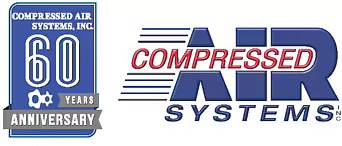Specifications
Shipping Weight |
N/A 730 lb |
Feed at 90 psig (99.99 Purity) |
N/A 37 scfm |
Output at 70 psig (99.99 Purity) |
N/A 297 scfh |
Feed at 90 psig (99.9 Purity) |
N/A 36 scfm |
Output at 70 psig (99.9 Purity) |
N/A 477 scfh |
Feed at 90 psig (99.5 Purity) |
N/A 34 scfm |
Output at 69 psig (99.5 Purity) |
N/A 567 scfh |
Feed at 90 psig (99.0 Purity) |
N/A 39 scfm |
Output at 68 psig (99.0 Purity) |
N/A 709 scfh |
Feed at 90 psig (98.0 Purity) |
N/A 42 scfm |
Output at 65 psig (98.0 Purity) |
N/A 877 scfh |
Feed at 90 psig (95.0 Purity) |
N/A 47 scfm |
Output at 57 psig (95.0 Purity) |
N/A 1135 scfh |
Feed at 110 psig (99.99 Purity) |
N/A 42 scfm |
Output at 90 psig (99.99 Purity) |
N/A 338 scfh |
Feed at 110 psig (99.9 Purity) |
N/A 40 scfm |
Output at 90 psig (99.9 Purity) |
N/A 542 scfh |
Feed at 110 psig (99.5 Purity) |
N/A 39 scfm |
Output at 88 psig (99.5 Purity) |
N/A 645 scfh |
Feed at 110 psig (99.0 Purity) |
N/A 44 scfm |
Output at 86 psig (99.0 Purity) |
N/A 806 scfh |
Feed at 110 psig (98.0 Purity) |
N/A 48 scfm |
Output at 80 psig (98.0 Purity) |
N/A 996 scfh |
Feed at 110 psig (95.0 Purity) |
N/A 54 scfm |
Output at 75 psig (95.0 Purity) |
N/A 1289 scfh |
Minimum Storage Capacity (Air) |
N/A 60 gal |
Minimum Storage Capacity (N2) |
N/A 60 gal |
Voltage |
N/A 100 V115 V120 V |
Phase |
N/A 1 |
Power Supply Frequency |
N/A 50 Hz60 Hz |
Inlet Ports |
N/A 1 in |
Outlet Ports |
N/A 1/2 in |
Maximum Inlet Pressure |
N/A 150 psig |
Height |
N/A 69 in |
Width |
N/A 52 in |
Depth |
N/A 28 in |
Common Applications
|
N/A
Beer & Wine Manufacturing & Storage |
Why do you need a GN2 System
|
N/A
75% to 92% Cost Savings |
System Operation
|
N/A
The earth’s atmosphere is comprised of approximately 78% nitrogen and 21% oxygen. Once atmospheric air is compressed, its pressure is increased while proportions of nitrogen and oxygen remain unchanged. Once the air is compressed it must be filtered and dried prior to its introduction to the GN2 system. |
Features & Options
|
N/A
|
Note
|
N/A
Custom designed, larger capacity or non standard purity systems are available upon request |





